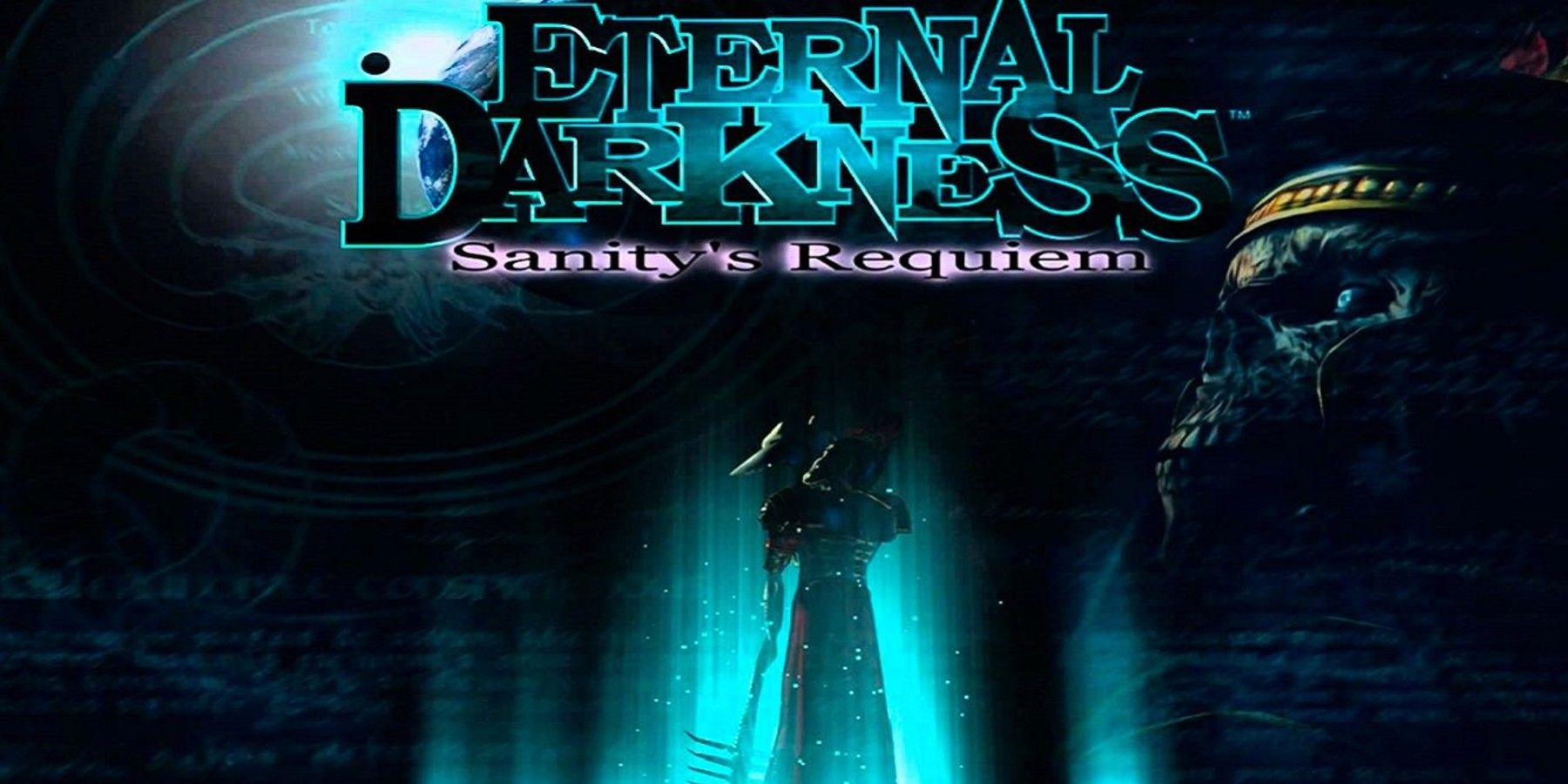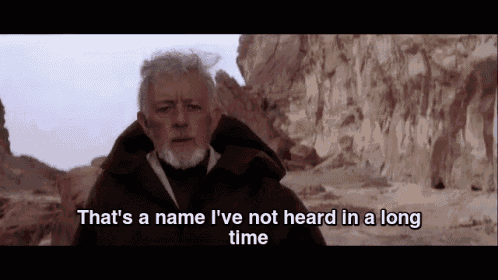IbizaPocholo
NeoGAFs Kent Brockman

Eternal Darkness Director Would Like to See a Remaster
Denis Dyack, director of the 2002 cult classic Eternal Darkness, says that the game would benefit from a modern remaster.
Dyack was featured as a guest of YouTuber Kiwi Talkz. During their conversation, the pair touched on several things Eternal Darkness related. Among the topics discussed were the game's lackluster sales, Eternal Darkness' influences, and the fact that the project was almost canceled by Nintendo before its eventual release. But with the current gaming landscape embracing remakes so passionately, Dyack was asked his thoughts on a potential Eternal Darkness remake.
Around the 17:30 mark of Dyack's interview, Kiwi Talkz brings up the potential idea of an Eternal Darkness remake coming to fruition following the success of Metroid Prime Remastered on Nintendo Switch. Dyack agrees by saying he does believe a remake would resonate with fans and that he does get asked about it all the time. He concludes the topic with "Who knows, maybe someday."
Dyack also briefly spoke on what made Eternal Darkness unique during its 2002 launch window on GameCube. He stated that he and his team at Silicon Knights "were doing Lovecraft before it was cool" and noted that Lovecraftian horror themes are almost pop culture now. He posited that games like Eternal Darkness and the studio's prior hit, Blood Omen: Legacy of Kain, aren't being made anymore - though Embracer Group has asked fans if there's demand. This is why his current development team, Apocalypse Studios, is targeting the genre once again with their upcoming free-to-play narrative-driven action RPG, Deadhaus Sonata.
Dyack mentioned that Eternal Darkness had around a 33% console share on the GameCube, meaning that about one copy of the game was sold per every three consoles. He noted that this was among the best attach rates on Nintendo's underperforming GameCube console, outside of Nintendo's first-party roster, of course. Eternal Darkness is commonly regarded as one of the better psychological horror games to ever be released. The game also ranks as one of few titles on Metacritic to receive a score of over 90 to never receive a sequel.
 Denis Dyack directed games such as Blood Omen Legacy of Kain, Eternal Darkness: Sanity's Requiem, and Metal Gear Solid: The Twin Snakes and is currently working on Deadhaus Sonata.
Denis Dyack directed games such as Blood Omen Legacy of Kain, Eternal Darkness: Sanity's Requiem, and Metal Gear Solid: The Twin Snakes and is currently working on Deadhaus Sonata. Dyack was a Canadian Taekwondo champion and did various martial arts, including wrestling for Brock University. He wanted to make video games but put himself through university in computer science and obtained a degree in physical education first.
Dyack was a Canadian Taekwondo champion and did various martial arts, including wrestling for Brock University. He wanted to make video games but put himself through university in computer science and obtained a degree in physical education first. Dyack was influenced by Bruce Lee's philosophy and loved martial arts and horror movies.
Dyack was influenced by Bruce Lee's philosophy and loved martial arts and horror movies. While martial arts and wrestling did not directly influence his work in video games, his love of action and horror genres is reflected in the games he directs.
While martial arts and wrestling did not directly influence his work in video games, his love of action and horror genres is reflected in the games he directs.
 Eternal Darkness on GameCube sold well from a penetration point of view, but the GameCube was Nintendo's worst selling console at the time.
Eternal Darkness on GameCube sold well from a penetration point of view, but the GameCube was Nintendo's worst selling console at the time. Denis Dyack's favorite movie of all time is John Carpenter's The Thing, which performed poorly at the box office but became his most iconic movie.
Denis Dyack's favorite movie of all time is John Carpenter's The Thing, which performed poorly at the box office but became his most iconic movie. Many people consider Eternal Darkness to be their favorite game of all time, including some people who worked on the project at Nintendo. Dyack believes the game was ahead of its time in terms of quantum mechanics, replayability, and Lovecraftian themes.
Many people consider Eternal Darkness to be their favorite game of all time, including some people who worked on the project at Nintendo. Dyack believes the game was ahead of its time in terms of quantum mechanics, replayability, and Lovecraftian themes. Dyack believes a remastered version of Eternal Darkness would sell well and has mentioned that the game could benefit from a Metroid Prime-style remaster.
Dyack believes a remastered version of Eternal Darkness would sell well and has mentioned that the game could benefit from a Metroid Prime-style remaster. Deadhaus Sonata is a game that Dyack and his team are working on, with the goal of creating the "Holy Grail" of narrative games like Eternal Darkness and Legacy of Kain. They believe that games like these are not being made anymore, and that there is a demand for them.
Deadhaus Sonata is a game that Dyack and his team are working on, with the goal of creating the "Holy Grail" of narrative games like Eternal Darkness and Legacy of Kain. They believe that games like these are not being made anymore, and that there is a demand for them. Dyack acknowledges that it would be impossible for his team to develop a remastered version of Eternal Darkness or oversee its development, but he does not rule out the possibility of a third-party studio taking on the project.
Dyack acknowledges that it would be impossible for his team to develop a remastered version of Eternal Darkness or oversee its development, but he does not rule out the possibility of a third-party studio taking on the project.
 Dyack describes two schools of thought on game development: Japanese development-driven approach and Western marketing-driven approach.
Dyack describes two schools of thought on game development: Japanese development-driven approach and Western marketing-driven approach. Nintendo is an example of a company that prioritizes development-driven philosophy.
Nintendo is an example of a company that prioritizes development-driven philosophy. Western companies tend to create games with huge marketing budgets that come before development.
Western companies tend to create games with huge marketing budgets that come before development. Dyack believes that the most engaging part of a game should be the starting point of development, and that this philosophy is more common in Japan.
Dyack believes that the most engaging part of a game should be the starting point of development, and that this philosophy is more common in Japan. The Western model of creating games results in many failures due to a focus on quantity over quality.
The Western model of creating games results in many failures due to a focus on quantity over quality. Nintendo, Sony, and other companies with development-driven philosophies tend to create higher quality games.
Nintendo, Sony, and other companies with development-driven philosophies tend to create higher quality games. Microsoft is an example of a company that prioritizes quantity over quality when it comes to game development.
Microsoft is an example of a company that prioritizes quantity over quality when it comes to game development.
 Dyack's story of how the Metal Gear Solid collaboration between Konami and Nintendo started.
Dyack's story of how the Metal Gear Solid collaboration between Konami and Nintendo started. Kojima believes in focusing on the experience they will give to gamers, hence the internal discussions on what unique experience they can give to Nintendo gamers through Metal Gear.
Kojima believes in focusing on the experience they will give to gamers, hence the internal discussions on what unique experience they can give to Nintendo gamers through Metal Gear. The collaboration was unique as it involved three companies working together and bringing in all of their worlds together to create a unique project.
The collaboration was unique as it involved three companies working together and bringing in all of their worlds together to create a unique project. The decision to add the first-person mode in Twin Snakes was made after a discussion between Kojima and Dyack. The aim was to give gamers a unique experience, and although it made the boss fights easier, they went with it as it adds to the overall experience.
The decision to add the first-person mode in Twin Snakes was made after a discussion between Kojima and Dyack. The aim was to give gamers a unique experience, and although it made the boss fights easier, they went with it as it adds to the overall experience. The Easter egg with Mario and Yoshi was a collaboration between the team, and everything has to be approved by everyone. The collaboration was one of the most memorable things about the project, and everyone was very willing to cooperate.
The Easter egg with Mario and Yoshi was a collaboration between the team, and everything has to be approved by everyone. The collaboration was one of the most memorable things about the project, and everyone was very willing to cooperate.
 Denis Dyack explains the difficulty of world building in video games and how it is much harder than writing in the Aristotle's way, where most Hollywood writers come from.
Denis Dyack explains the difficulty of world building in video games and how it is much harder than writing in the Aristotle's way, where most Hollywood writers come from. He states that creating a game with extensive world building involves years of research, building a foundation before even creating the basic storyline that may adapt and change.
He states that creating a game with extensive world building involves years of research, building a foundation before even creating the basic storyline that may adapt and change. Dyack uses Deadhaus Sonata as an example of how they've done a lot of research on the different types of undead, categorizing them and creating different hierarchies of gods.
Dyack uses Deadhaus Sonata as an example of how they've done a lot of research on the different types of undead, categorizing them and creating different hierarchies of gods. There will be eight other houses in the game, and they have created hours of radio plays outside of the game to give people an idea of the universe they're creating.
There will be eight other houses in the game, and they have created hours of radio plays outside of the game to give people an idea of the universe they're creating. Dyack states that they're creating a really Grim world where it's better off to be dead than alive and that the game should be an extremely engaging experience for everybody plot-wise.
Dyack states that they're creating a really Grim world where it's better off to be dead than alive and that the game should be an extremely engaging experience for everybody plot-wise. Dyack explains that, unlike AAA products, the free-to-play model allows them to iterate with their audience and community once they've launched the game.
Dyack explains that, unlike AAA products, the free-to-play model allows them to iterate with their audience and community once they've launched the game. The idea is to present narrative in a very different way than what people have seen before and that Legacy of Kane is an excellent example of this. Everything was voice-acted by professional actors and had no text, and this is how they plan to propel the narrative forward in Deadhaus Sonata.
The idea is to present narrative in a very different way than what people have seen before and that Legacy of Kane is an excellent example of this. Everything was voice-acted by professional actors and had no text, and this is how they plan to propel the narrative forward in Deadhaus Sonata.
 The game Deadhaus Sonata has musical references in its name and gameplay, such as a blood chant and chants and songs used for spells cast by characters.
The game Deadhaus Sonata has musical references in its name and gameplay, such as a blood chant and chants and songs used for spells cast by characters. The use of music in storytelling is inspired by the structure of a classical Sonata and old Egyptian manuscripts that mention priests using singing to levitate stones and cut them.
The use of music in storytelling is inspired by the structure of a classical Sonata and old Egyptian manuscripts that mention priests using singing to levitate stones and cut them. The game's ambition is to bring people together through a common love of music and storytelling, without preaching to anyone or dictating how they should think.
The game's ambition is to bring people together through a common love of music and storytelling, without preaching to anyone or dictating how they should think. The creators aim to provide a lot of depth to the game's story, offering "meat on the bone" for players to enjoy.
The creators aim to provide a lot of depth to the game's story, offering "meat on the bone" for players to enjoy.







